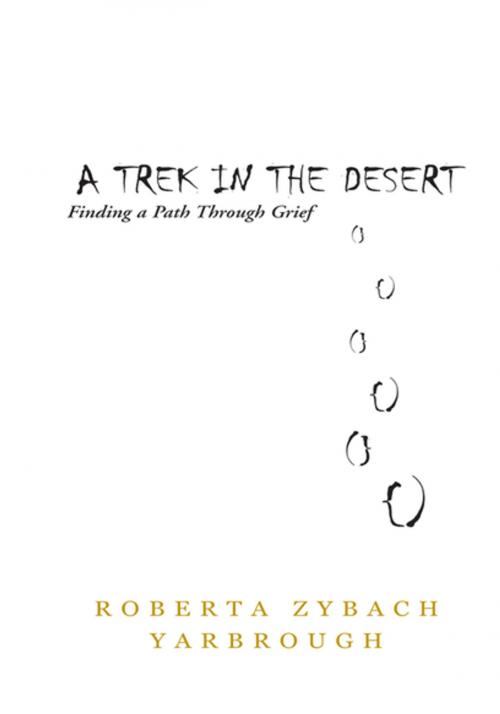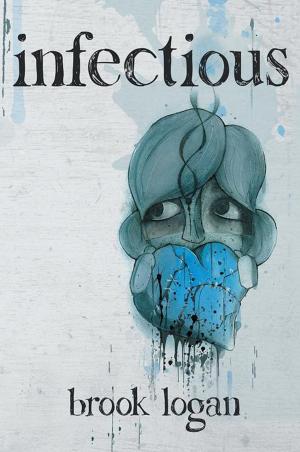A Trek in the Desert
Finding a Path Through Grief
Nonfiction, Health & Well Being, Self Help, Mental Health, Death, Grief, Bereavement| Author: | Roberta Zybach Yarbrough | ISBN: | 9781465323651 |
| Publisher: | Xlibris US | Publication: | September 22, 2000 |
| Imprint: | Xlibris US | Language: | English |
| Author: | Roberta Zybach Yarbrough |
| ISBN: | 9781465323651 |
| Publisher: | Xlibris US |
| Publication: | September 22, 2000 |
| Imprint: | Xlibris US |
| Language: | English |
A Trek In the Desert: Finding a Path Through Grief is a book about the universal experience of grief, and the road to grief recovery. In her burning need to find relief and regain a feeling of sanity following the death of her son by suicide, the death of her husband from cancer and the death of an ex-husband, Roberta Zybach Yarbrough began her personal journey to understand something about grief and grief recovery. In the process, she discovered that there remained unresolved issues surrounding the loss of her parents. In this book, she draws on her own observations, experience and the knowledge primarily gleaned through reading, counseling (both private and group) attending grief recovery seminars, and through her own writing.
The reader is taken on a journey through the life of a divorced single mother, her struggles to become self-supporting, self-sufficient and self-confident enough to trust another relationship. Her second marriage, to Lee, also ends in divorce. As she continues to advance in her career, her self-confidence increases and she is willing to commit to another relationship. In 1976, she is again married. Her husband, Bob, is subsequently diagnosed with cancer.
While her life to this point has not been easy, she is totally unprepared for the news of the death by suicide of her son, Todd, who was battling cocaine addiction. She feels her emotions must be stifled to a large extent because of the responsibility she carries of tending her terminally ill husband. For the two years between the death of her son and the death of her husband, she begins her grief work. She seeks relief from the guilt and anger as well as shame and rejection associated with suicide. At the same time, she is dealing with anger at her husband for being seriously ill and unable to offer her comfort or help with her grief work. She learns that irrational feelings are a part of grief.
While she is working to recover from the loss of her son, she feels that she dare not give in to her grief as she faces the imminent death of her husband. As Bob enters hospice care, Roberta becomes his caregiver. In the last four months of his life, he requires constant care, giving the couple a special time together to iron out differences, forgive and be forgiven. She says, Caring for Bob in his last days was the most loving things I have ever had the opportunity to do.
A few months after Bobs death, Lee also dies following a lingering illness. While their marriage was short, they had remained friends, and his death was another serious loss. Since she is an ex-wife who had remarried, she is a disenfranchised griever.
Different emotions are associated with each of these losses. Death by suicide leaves survivors in shock, feeling rejection, anger, guilt and shame. In the case of death from cancer, there is a feeling of relief that suffering has ended, yet there is a deep sadness and a feeling of exhaustion.
Disenfranchised grief is a sense of loss not normally recognized as legitimate grief by society. For instance, an ex-spouse, a distant relative, a pet, a homosexual partner, etc. The grief is real but unrecognized. These feelings, while often severe, are normally untended since they are ignored by society. Therefore, those who grieve often believe they, too, should ignore their feelings. Stuffing emotions under a mental rug does not make them go away.
In her grief work, Yarbrough discovers that there are unresolved issues surrounding her parents deaths in the mid 1970. She has been unable to return to the home in Texas where she was raised and where her parents had lived until her mothers death in 1972. Everything is different. Her parents are gone, the house is gone. What had always been a safe harbor in the storms of her life is no more. &nb
A Trek In the Desert: Finding a Path Through Grief is a book about the universal experience of grief, and the road to grief recovery. In her burning need to find relief and regain a feeling of sanity following the death of her son by suicide, the death of her husband from cancer and the death of an ex-husband, Roberta Zybach Yarbrough began her personal journey to understand something about grief and grief recovery. In the process, she discovered that there remained unresolved issues surrounding the loss of her parents. In this book, she draws on her own observations, experience and the knowledge primarily gleaned through reading, counseling (both private and group) attending grief recovery seminars, and through her own writing.
The reader is taken on a journey through the life of a divorced single mother, her struggles to become self-supporting, self-sufficient and self-confident enough to trust another relationship. Her second marriage, to Lee, also ends in divorce. As she continues to advance in her career, her self-confidence increases and she is willing to commit to another relationship. In 1976, she is again married. Her husband, Bob, is subsequently diagnosed with cancer.
While her life to this point has not been easy, she is totally unprepared for the news of the death by suicide of her son, Todd, who was battling cocaine addiction. She feels her emotions must be stifled to a large extent because of the responsibility she carries of tending her terminally ill husband. For the two years between the death of her son and the death of her husband, she begins her grief work. She seeks relief from the guilt and anger as well as shame and rejection associated with suicide. At the same time, she is dealing with anger at her husband for being seriously ill and unable to offer her comfort or help with her grief work. She learns that irrational feelings are a part of grief.
While she is working to recover from the loss of her son, she feels that she dare not give in to her grief as she faces the imminent death of her husband. As Bob enters hospice care, Roberta becomes his caregiver. In the last four months of his life, he requires constant care, giving the couple a special time together to iron out differences, forgive and be forgiven. She says, Caring for Bob in his last days was the most loving things I have ever had the opportunity to do.
A few months after Bobs death, Lee also dies following a lingering illness. While their marriage was short, they had remained friends, and his death was another serious loss. Since she is an ex-wife who had remarried, she is a disenfranchised griever.
Different emotions are associated with each of these losses. Death by suicide leaves survivors in shock, feeling rejection, anger, guilt and shame. In the case of death from cancer, there is a feeling of relief that suffering has ended, yet there is a deep sadness and a feeling of exhaustion.
Disenfranchised grief is a sense of loss not normally recognized as legitimate grief by society. For instance, an ex-spouse, a distant relative, a pet, a homosexual partner, etc. The grief is real but unrecognized. These feelings, while often severe, are normally untended since they are ignored by society. Therefore, those who grieve often believe they, too, should ignore their feelings. Stuffing emotions under a mental rug does not make them go away.
In her grief work, Yarbrough discovers that there are unresolved issues surrounding her parents deaths in the mid 1970. She has been unable to return to the home in Texas where she was raised and where her parents had lived until her mothers death in 1972. Everything is different. Her parents are gone, the house is gone. What had always been a safe harbor in the storms of her life is no more. &nb















